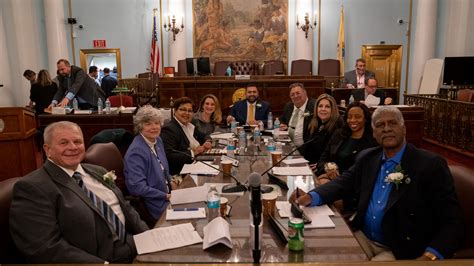County Commissioner: Building a Stronger Community
County Commissioners play a vital role in shaping the communities they serve. They're not just politicians; they're the architects of local progress, responsible for overseeing essential services, managing budgets, and fostering a thriving environment for residents and businesses alike. This article delves into the multifaceted responsibilities of a County Commissioner and explores how they contribute to building a stronger, more resilient community.
What Does a County Commissioner Do?
County Commissioners are elected officials who manage the day-to-day operations of county government. Their responsibilities are incredibly diverse and often include:
-
Budget Management: Commissioners are key players in crafting and approving the county budget, allocating resources to vital services like public safety, infrastructure, and social programs. This requires careful financial planning and prioritization to maximize the impact of taxpayer dollars.
-
Infrastructure Development: From roads and bridges to parks and public buildings, Commissioners oversee the planning, construction, and maintenance of essential infrastructure. This involves working with engineers, contractors, and community members to ensure projects are completed efficiently and effectively.
-
Public Safety: Commissioners play a crucial role in ensuring the safety and security of their constituents. This includes supporting law enforcement, fire departments, and emergency medical services, as well as working to prevent crime and promote community safety initiatives.
-
Social Services: Many counties provide critical social services, such as healthcare, senior assistance, and support for vulnerable populations. Commissioners are involved in overseeing these programs and ensuring they meet the needs of the community.
-
Economic Development: Commissioners often work to attract businesses, create jobs, and foster a thriving local economy. This involves collaborating with businesses, economic development organizations, and other stakeholders to improve the county's economic outlook.
-
Community Engagement: Effective Commissioners prioritize community engagement, actively listening to residents' concerns, and incorporating their input into decision-making processes. This involves attending public meetings, responding to constituent inquiries, and fostering open communication.
How Do County Commissioners Build a Stronger Community?
The impact of a County Commissioner extends far beyond the confines of the courthouse. Their actions directly contribute to a stronger community in several ways:
-
Improving Quality of Life: By investing in infrastructure, supporting social services, and promoting economic development, Commissioners work to enhance the overall quality of life for residents. This translates to safer neighborhoods, better schools, improved healthcare, and more opportunities for economic advancement.
-
Promoting Sustainability: Many Commissioners are increasingly focused on environmental sustainability, implementing initiatives to protect natural resources, promote renewable energy, and mitigate the effects of climate change. These efforts contribute to a healthier and more sustainable future for the community.
-
Fostering Collaboration: Effective Commissioners understand the importance of collaboration. They work with other government agencies, community organizations, and private sector partners to address local challenges and achieve shared goals. This collaborative approach is essential for building a strong and resilient community.
-
Enhancing Transparency and Accountability: Building trust with the community is paramount. Commissioners who prioritize transparency and accountability, providing regular updates and actively soliciting feedback, foster a stronger sense of community ownership and engagement.
What are the challenges faced by County Commissioners?
The role of a County Commissioner is not without its challenges. They often grapple with:
-
Limited Resources: Counties often face budgetary constraints, requiring Commissioners to make difficult decisions about how to allocate limited resources effectively.
-
Balancing Competing Interests: Commissioners must balance the needs and priorities of diverse community groups, often facing conflicting interests and opinions.
-
Rapid Change: Communities are constantly evolving, requiring Commissioners to adapt to new challenges and opportunities, including technological advancements and societal shifts.
-
Public Scrutiny: Commissioners are subject to public scrutiny and must be prepared to defend their decisions and actions transparently and effectively.
What qualities make a good County Commissioner?
Several key qualities contribute to the success of a County Commissioner:
-
Leadership and Vision: Effective Commissioners possess strong leadership skills, the ability to articulate a clear vision for the future, and the determination to achieve their goals.
-
Communication and Collaboration: Strong communication skills and the ability to build consensus and foster collaboration are essential for effective leadership.
-
Problem-Solving Skills: County Commissioners regularly face complex problems that require creative problem-solving skills and the ability to make informed decisions under pressure.
-
Integrity and Transparency: Maintaining high ethical standards and ensuring transparency in all actions are critical for earning public trust and fostering a positive relationship with the community.
By understanding the role and responsibilities of County Commissioners, we can better appreciate the impact they have on our communities. Their dedication and commitment are vital for building stronger, more prosperous, and resilient communities for all.

